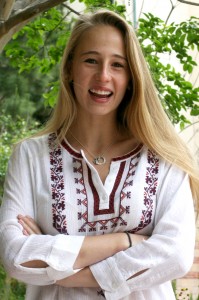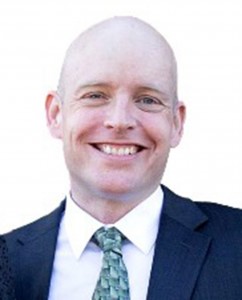Nine students were awarded the Library Prize for Undergraduate Research as part of Undergraduate Research Week, which ended Friday.
The prizes consisted of seven categories, and winners were awarded cash prizes ranging from $250 to $450 for major and minor projects depending on each paper’s length. Winning projects will be published on eScholarship, the University of California’s public platform for scholarly essays.
Marta Brunner, the interim director for technology and learning service at UCLA Library and interim head of Powell Library, said the judging committee received a wide range of project topics including science and math, whereas applications from the previous years mostly came from humanities and social sciences students.
Brunner said the judging committee of librarians, faculty and a past winner received over 40 applications for the seventh annual contest.
Best minor project in the sciences
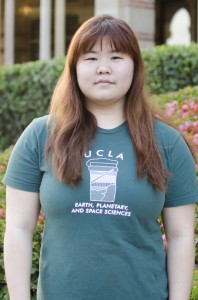
Brenda Pack, a fourth-year geology student, won the prize for best minor project in the sciences for a lab project analyzing the crystallization of rock samples from a volcano in Mexico that erupted in 1982.
Pack said the only assistance she received for her project came from Axel Schmitt, a UCLA professor of earth, planetary and space sciences. She completed all the manual work of crushing the rock samples Schmitt brought from Mexico and putting them into the imaging machines.
Pack said she enjoyed the opportunity to tie together her own research and already published scholarly works. She said she started with little groundwork but discovered zircon in the samples that shed light on the crystallization of the rock. She decided to continue to further explore geochemistry because of the research.
Best minor project in the arts and humanities
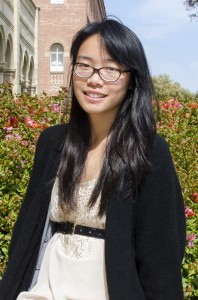
Ann Zeng, a fourth-year linguistics student, said her research in a Chinese linguistic phenomenon was a way for her to connect to her culture.
Zeng’s project examined when and how Mandarin speakers use a linguistic phenomenon specific to the Mandarin language and why that phenomenon makes sense to Mandarin speakers.
Zeng said she kept pursuing the project even after her research class ended because it prepared her for the linguistics analyses she will have to conduct in the future.
Best special collections project
Winners of the best special collections project said their work analyzed the historical root of the disproportionate imprisonment of black individuals in Los Angeles.
Neda Hefzi, a fourth-year history student, said the project was part of a history capstone course. The undergraduate students, Hefzi, Lucas Bensley and Magdalyn Schmall, worked with three graduate students on the project.
Bensley, a fourth-year history and political science student and former Daily Bruin staffer, said the project analyzed the economic conditions of black individuals and the prison system in Los Angeles in the 1920s and 1930s to study the origin of alleged police targeting of blacks.
Bensley said because of the project, he was able to practice accessing the library’s special collections resources that regular research projects would not utilize, such as newspaper archives. He also learned to think from a humanized perspective by writing narrative biographies for black individuals who he said were unfairly imprisoned.
Schmall, a third-year history student, said the opportunity to explore previously undocumented histories triggered her interest in the project. She added she wanted to find the root of the disproportionate imprisonment of black individuals in Los Angeles.
Best major project in the arts and humanities
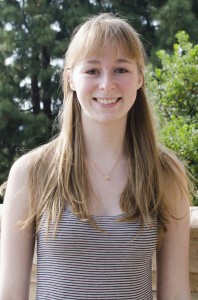
Annie Sundelson entered her first year year at UCLA as a pre-med student with an interest in public health and Russian culture.
The fourth-year Russian language and literature student said she decided to blend her interests in her senior thesis. Sundelson’s research explores how Russian leaders use the HIV/AIDS epidemic and negative attitudes toward the lesbian, gay, bisexual and transgender community to distract citizens from Russia’s political and economic problems, such as falling oil prices and the war on Ukraine.
“I’m writing on a topic that not a lot of people talk about in Russian studies because it is controversial and uncomfortable,” she said. “It was nice that someone outside (the department) thinks what I’m doing is worthy and interesting.”
Sundelson said she wants to pursue a career in public health and use it to create a dialogue between the U.S. and Russia.
Best major project in the social sciences
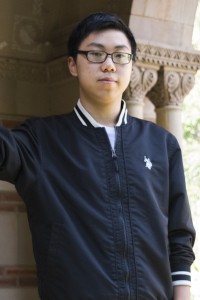
Yiming Ha, a fourth-year history student, won the best major project for the social sciences prize of $450 for his thesis about the Imjin War in 1592 and its effect on contemporary tensions between the Japanese and Chinese cultures.
“This war is not very well-known in the West, but it is still relevant because there are strong tensions between Japan and China,” Ha said.
Ha said he wanted to dig deeper into the reasons behind these social differences and unravel the history to get a glimpse of why people think the way they do about each other. After graduating, Ha said he wants to pursue a doctoral degree and teach history at a college level.
Best Minor Project in the Social Sciences
When she was younger, Alison Mally said she remembered overhearing conversations between mothers who preferred to have their children exposed to chickenpox to gain immunity naturally. She said some anti-vaccine arguments baffled her.
Inspired by John Snow and Galileo, two scientists who opposed the scientific norms of their time, Mally, a second-year human biology and society student, said she decided to look more closely at two contemporary health problems. She studied the anti-vaccine movement and HIV/AIDS denial research to understand when denial can lead to progress and when it is detrimental to public health.
Mally said her research reinforced her belief as a pre-med student that society is closely linked to medicine.
Mally said in the future she wants to be an infectious disease specialist and volunteer abroad, using her knowledge to relate culture to medicine.
Clark Library Prize
In the 1500s, more young men in England were jumping on pirate ships than enlisting in the navy. Michael Stinson, a fourth-year history student, attributed the phenomenon to romanticized images of pirates in that time period.
In his research project, Stinson analyzed Sir Walter Riley’s life, an English nobleman who was glorified as a pirate, to understand how myths and public perception affect historical outcomes and policy.
“I looked at the (English) Crown’s side as well as the public’s to see whether there was even a myth,” Stinson said. “There were awesome speeches about (Riley) that weren’t reflective of what he was like.”
Stinson said he wants to become a history professor and gain a better understanding of how events unfold based on the past.
